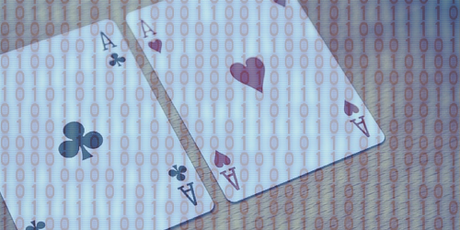
It’s looking like Carnegie Mellon’s poker-playing A.I. Claudico will be unable to beat the four top professional human poker players it’s been matched with in this epic man-vs-machine game of no-limit Texas hold’em.
Claudico is an advanced version of the computer program Tartanian7, which came away with a clear victory last July at the Association for the Advancement of Artificial Intelligence’s Annual Computer Poker Competition. But beating four of the top players in the world is another challenge entirely.
A.I. has handily beat the top human champions at chess and at Jeopardy. What makes poker different? Mainly, it’s that in chess and Jeopardy, all the information is available; you just need to parse it. In poker, this is not the case. Effective strategy requires being flexible, unpredictable, and great at dealing with missing and/or misleading information – which so far is very challenging for AIs.
As Ken Chiacchia of the Pittsburgh Supercomputing Center puts it:
The stakes are much higher than any poker game. As the dean of CMU’s School of Computer Science, Andrew Moore, very aptly put it on the tournament’s launch day, while teaching a machine to bluff and deceive might conjure up every dystopic spec-fic trope in the book, in fact we are going to need AIs that can help us see through the many deceptions we encounter, particularly given an increasingly electronic world. AIs may also help us to better protect physical sites like nuclear plants against bad guys (who are of course not tipping their hands), computers against crackers and our bodies against cancer. In just about every situation in which we need to confront a problem with incomplete information, this work—and its very non-poker-specialized algorithms—holds great promise.
